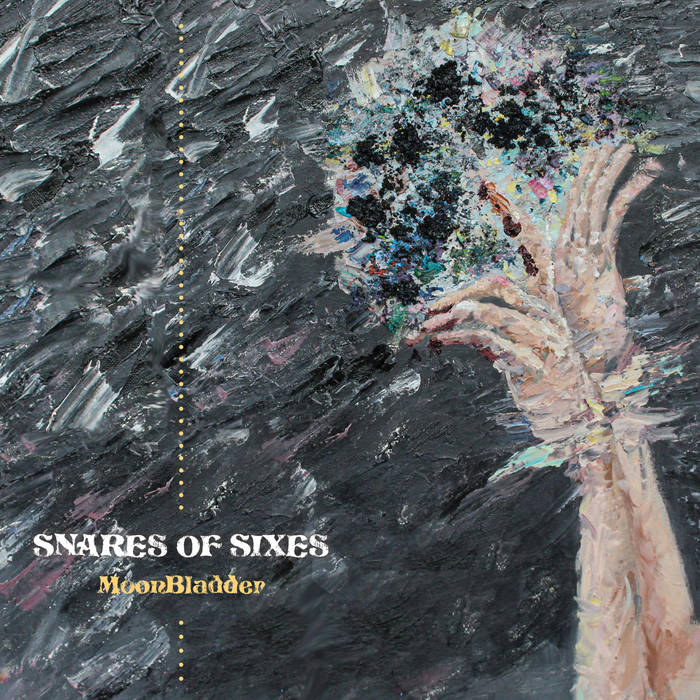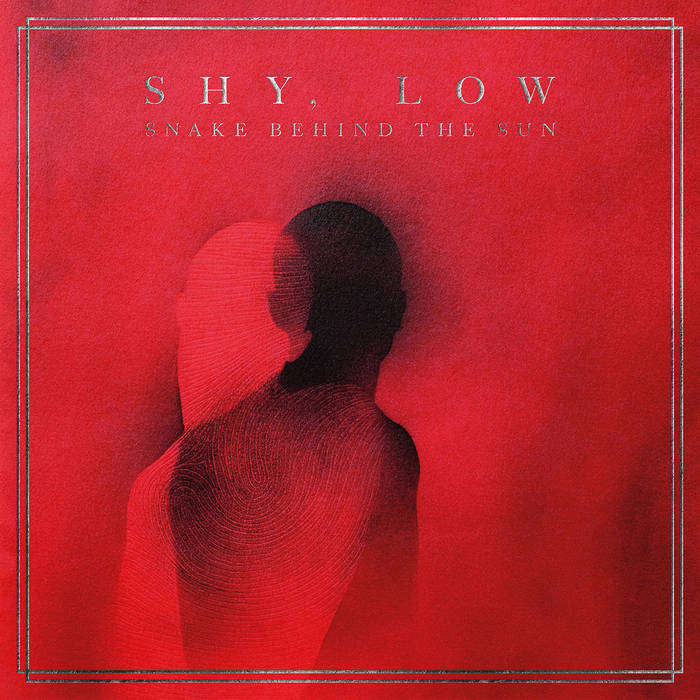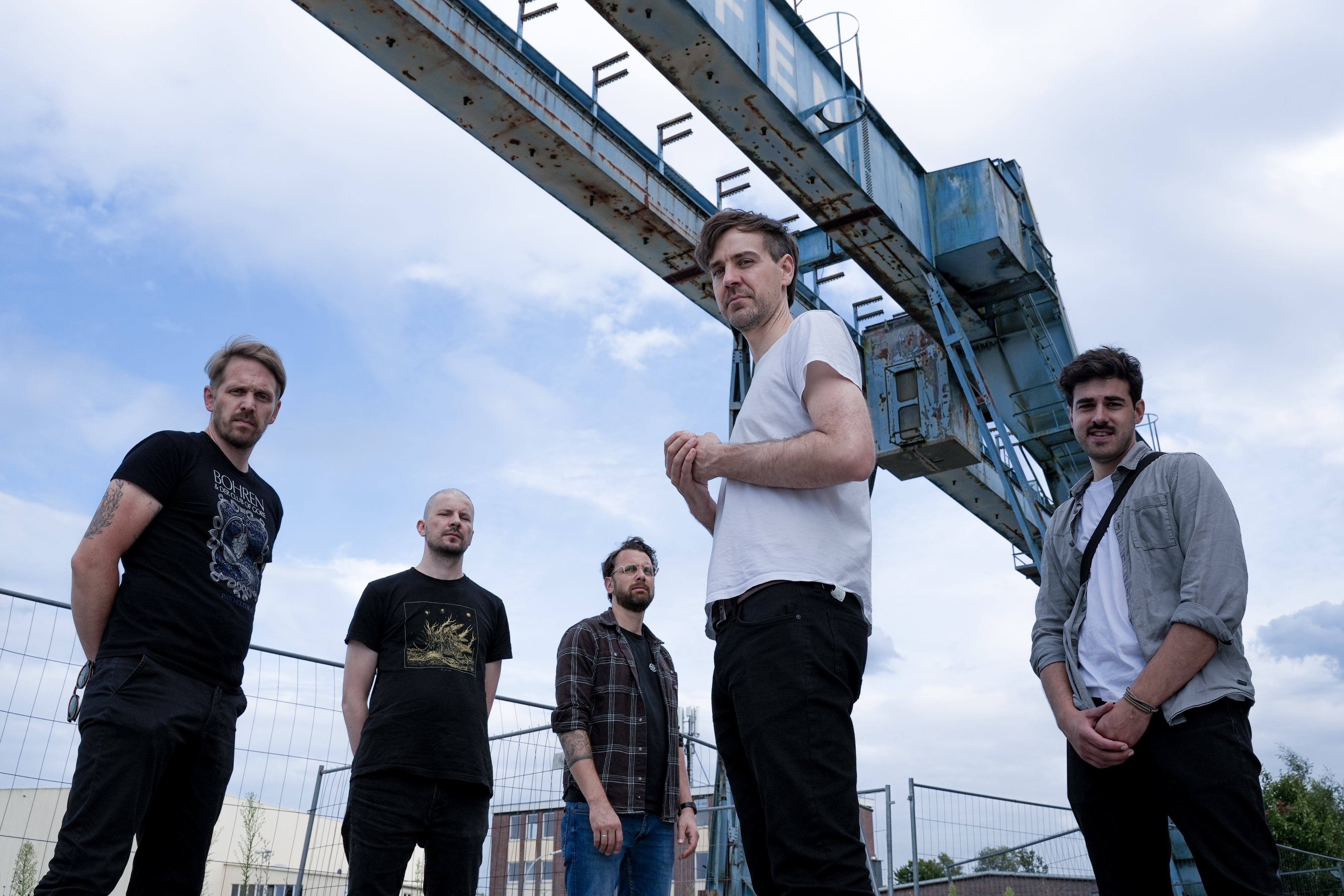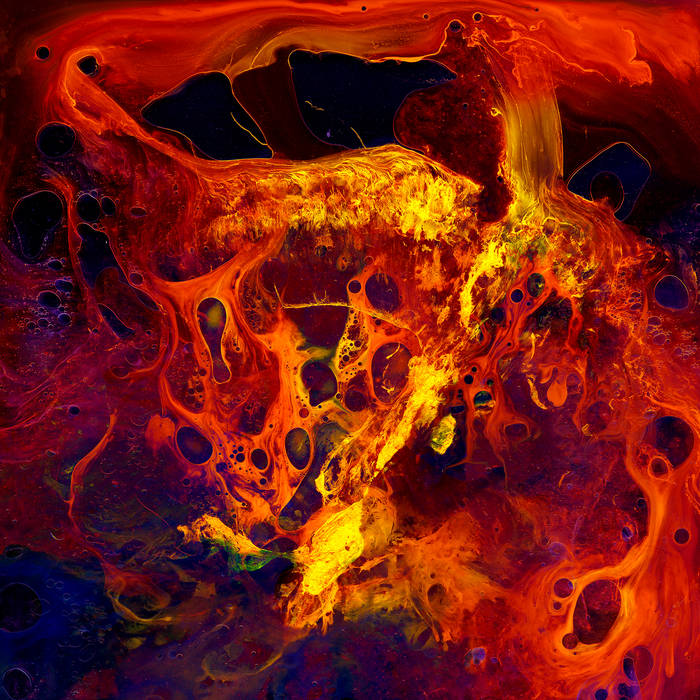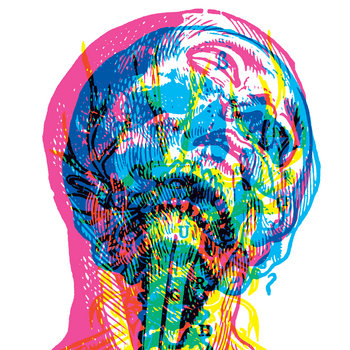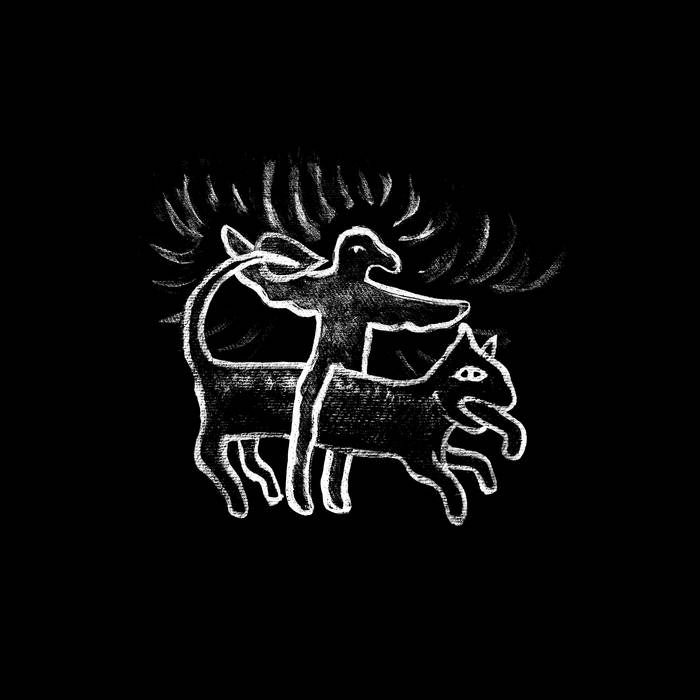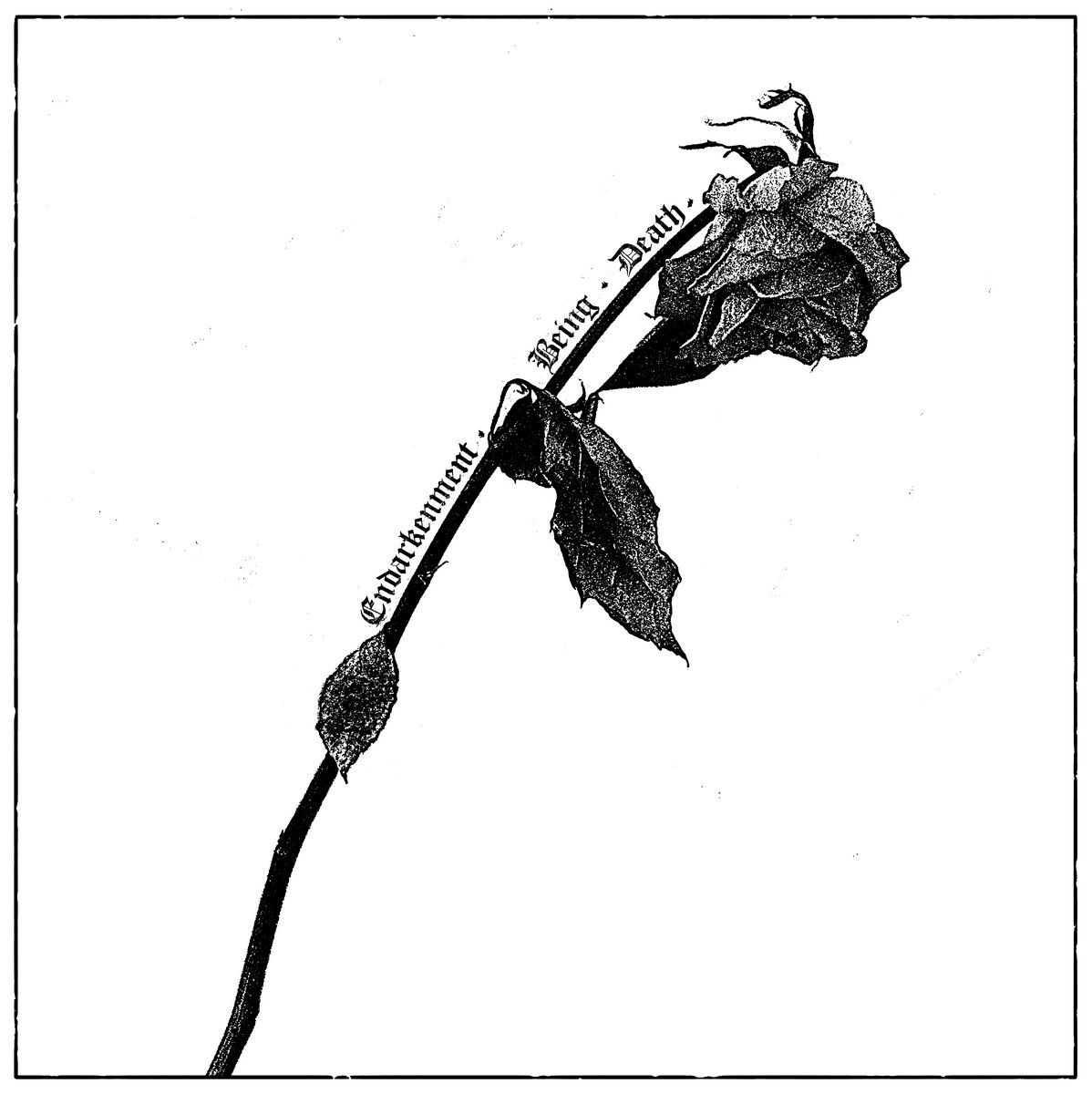It seems that the collective of artists that makes Snares of Sixes led by multi-talented Jason Walton never stops evolving. While the first release of the band left an Industrial musical impression, this new release might best be looked at as an Ambient musical poem, a thirty minutes long movement that challenges you and lets you float in an ever-changing, often dark, soundscape.
Ever since Øystein Aarseth of Mayhem asked the German experimental electronic composer Conrad Schnitzler to compose the opening track “Silvester Anfang” on Mayhem´s first EP, Deathcrush electronics and synths have been part of the sound of Black Metal, particularly in genres like Atmospheric Black Metal and Post Metal. Just as it was natural for Wolves in the Throne Room to venture into the Dark Ambient soundscape with Celestial it seems equally natural that Jason Walton, with his background on bass in Agalloch and many other cooperations, also ventures into the Dark Wave soundscape with his many collaborators on this album.
This musical poem might be inspired by the mid period of Ulver, as the release notes say, but there is much more to it than that, intended or not. With as many as 12 musicians participating, there is a multitude of sounds that immerse you in the unfolding ambiance. It is for the most parts a dark soundscape, where an electric and an acoustic guitar in between ease the darkness together with a piano. There are even tunes hidden in the dark that remind the listener of some Folk music. We float through a soundscape made up of Noise, Black Metal, Dark Ambient, Industrial and the Electronics that grew out of the German 70s scene of cosmic music.
The one-track album starts very dystopian with cinematic sound effects that lead to a short repetitive organ melody before a guitar sounding like Mike Oldfield´s guitar entering the soundscape for a short while before sound effects halts it. The guitar is now in the background and slowly perforating the soundscape together with a piano. The guitar lingers in between the multitude of electronic sound effects. Then the rhythm picks up and we are dragged into an industrial sound image, some of it might be reminiscent of Einstürzende Neubauten, but not for long as the sound spins into the dark vaults of Guðnadóttir’s Chernobyl soundtrack.
There is an abundance of sound effects all over the record and you are soon lifted out of the dark vaults to soar above some dense fog in the dusk of a rainy day. Deep down there you hear a confusing sound of short circuits, a drum is hit and a door opens in the dark, similar to the Klaus Schulze track ”Sebastian im Träum”. Opening the door does not let the light seep in, we are drawn back into the dark echoing vaults before we are once again lifted out of the dark vaults by a repetitive melody from what might be a MIDI instrument. There is a dark and dense ambiance underneath, while drums begin to pick up some speed just to disappear while acoustic guitars take over playing a relaxing melody. The guitars are followed by an abundance of conflicting sound effects with sampled voices in the background and a female and a male indistinct vocal. The soundscape evens out to prepare for an organ and choir accompanying Toby Driver´s vocals that close the musical poem MoonBladder.
Modern poetry is often a challenge for the reader to understand and read through. And so is this imaginative, dark musical poem and at the same time it is invigorating. It demands much of the listener, but the listener who are up to the challenge will be rewarded and the music will resonate inside of you long after you have taken the stylus off the vinyl or taken off your headphones.

